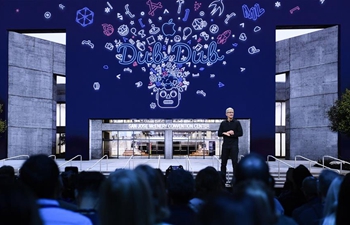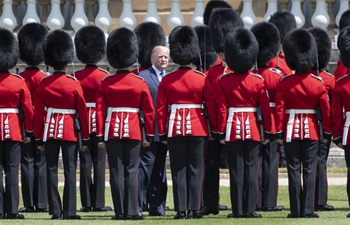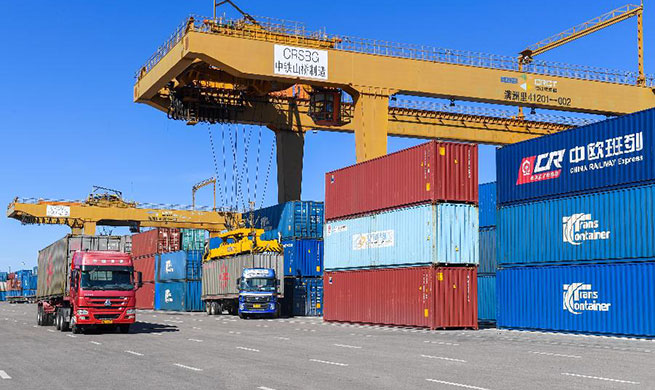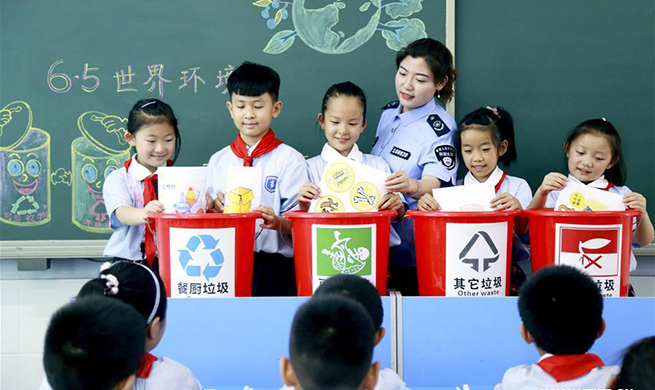NEW YORK, June 4 (Xinhua) -- Blaming China for homegrown economic problems in the United States "is an unfortunate mechanism of political convenience," a leading U.S. economist has said.
"For far too long, Washington has entered into an unsustainable social contract with the American people -- a bloated healthcare sector, outsize military expenditures, and low taxes that require imported surplus saving and large trade deficits to fund this economic over-reach," said Stephen Roach, a senior fellow at Yale University's Jackson Institute of Global Affairs, in a recent email interview with Xinhua.
As an economy lacking in savings, the United States must import capital abroad from world's major surplus savers, including China, to invest and grow, the former chairman of Morgan Stanley Asia said.
"The blame game" is only "identifying others as the culprit rather than admitting responsibility for deep-rooted problems," Roach said.
According to the senior economist, the U.S. net domestic saving rate in the first quarter of 2019 stood at 2.4 percent, "well less than half the 6.3 percent average that prevailed over the final three decades of the 20th century (from 1970-1999)."
He pointed out the notion that levying tariffs could help fix trade deficits "is factually and analytically wrong," since they cannot reduce the size and scope of the overall multilateral trade deficit.
Washington must figure out a way to start saving again if it does not want a trade deficit, however, the possibility seems unlikely in light of its large and rising budget deficits in the years ahead, Roach said.
The longtime expert on U.S.-China trade also said that the United States employs a false narrative on China by describing the country as an existential threat to Washington's economic future.
The allegations are based on weak evidence and neglect the fact that the same saving problems, which lead to trade deficits, will also inhibit America's potential to invest in its industries of the future, like 5G capabilities, he said.
"Blaming China for America's homegrown shortfalls in driving its own innovation model is yet another painfully unfortunate characteristic of a politically-inspired blame game," he also said.
"The politics of protectionism pose an existential threat to sustainable global economic activity," Roach warned. "Tit-for-tat tariffs will reduce economic activity in both the United States and China and will disrupt global activity through supply-chain linkages."
Supply chains are key to holding down global inflation while the risk of higher inflation and interest rates will only mount if they are disrupted, an outcome that has the potential to deal a devastating blow to global financial markets, according to Roach.













